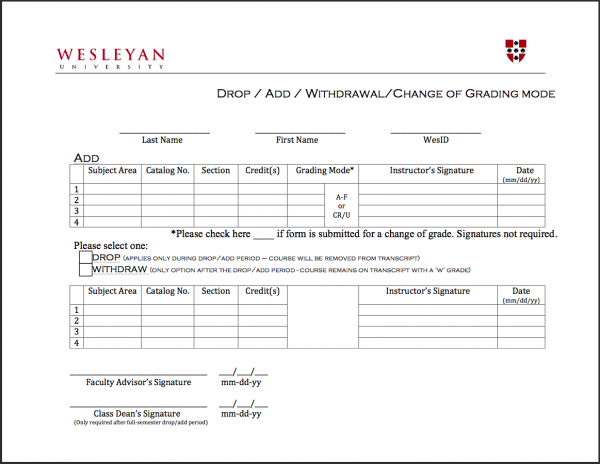Title: “The Art of Doing: Creative Project Production and Making It Happen”
Instructors: Michael Pope with Amanda Palmer
https://iasext.wesleyan.edu/regprod/!wesmaps_page.html?stuid=&facid=NONE&crse=015041&term=1179
Description:
Students learn collaborative creative super filmmaking powers before being dropped off on a metaphoric desert island with nothing but a camera phone and a song. Beauty Ensues. This studio class will focus on non-traditional video production techniques towards a final project of a class-created music video featuring music and performance by Amanda Palmer. Students will co-create every aspect of this video, from conceptualization to editing to screening, with the final product being released to her Patreon community.
The course seeks to illuminate the creative process by way of mindful reflection, and physical training to promote creative cooperation between various artistic mediums. Students are expected to participate in team building physical exercises inspired by physical theater, Butoh and some physical meditations. Meaning: Students will be be expected to participate in physical activity that includes jumping, running, yelling, and the like.
The course will allow us to sketch answers to questions like these, among others: How do you forge creative collaborations that allow you to realize your projects and that create the best conditions for your creative work? How do you raise awareness about your creative projects?
Taught by director Michael Pope who has shot, cut and directed the music videos for The Dresden Dolls and Amanda Palmer’s first solo album (Who Killed Amanda Palmer), in collaboration with Amanda Palmer as visiting co-creator, the course will culminate in a screening of the class-created video that will be part of a Wesleyan-hosted Amanda Palmer concert on Dec 9.
No prior film or video-making experience required, though all students seeking admission to the course are required to submit an application.
Only serious, fully engaged and enthusiastic students should apply. Students must commit to shooting the weekend of Nov 17-18-19 and must be available all day Sat and Sun Nov 18 and 19.
Students will be required to apply for this course by August 15. They will be notified of admission to the course by August 31.
Course enrollment limit: 15 (all class years allowed)
Grading mode: Cr/U for final grades. Students will be given an indication of whether they are passing the course by midterm.
Major Readings: Course Reader.
Other readings may include: “The Five Rings” Myamoto Musashi; “50 Secrets of Magic Craftsmanship”, Salvadore Dali;”Giovanni’s Room”, James Baldwin;
“Just Kids”, Patti Smith; “The Power of Movies”, Colin McGinn.
Assignments: Weekly assignments from individual students, collaborative assignments, final reflective essay of 5 pp.
Class meetings: W and F 2:40-4:10 pm
Additional information:
No prior film or video-making experience required, though all students seeking admission to the course are required to submit an application.
Only serious, fully engaged and enthusiastic students should apply. Students must commit to shooting the weekend of Nov 17-18-19 and must be available all day Sat and Sun Nov 18 and 19.
Students will be required to apply for this course by August 15. They will be notified of admission to the course by August 31.
Application to the “The Art of Doing”
Students are invited to submit this creative challenge for consideration for admission to “The Art of Doing”.
Applications should be submitted to this email address: artofdoingapplication@gmail.com
Only applications sent from wesleyan.edu email addresses will be considered.
There are two required parts to the application. Please make sure each part the application clearly indicates your name.
Part I. Create a digital still-image Self Portrait (photograph, collage, rendering).
Choose and incorporate three items into your self-portrait.
- One item to represent who you have been.
- One item to represent who you are now.
- One item to represent who you imagine yourself to be in the future.
Applicants are invited to interpret this exercise as best suits their creative strengths.
Part II. Please submit only one document that contains all the required elements A-D (detailed below). Please make sure this document clearly identifies you as the author.
A. In 200 words or less, explain the significance of each item in Part A.
B. In 200 words or less, explain why your interested in taking the course “The Art of Doing: Creative Project Production and Making It Happen”.
C. In 100 words, or less, describe your experience with Cr/U courses and your attitude toward Cr/U courses.
D. Applications should include
- List of current creative skills
- List of additional interests
E. Optional
Applicants are invited to submit up to three samples of creative work jpeg and mov files.
Note: mov files may be no longer than 180 seconds.
Please do not purchase any books until you have been notified about admission to the course.



 The last day to withdraw from full-semester and second-quarter classes for the Spring 2017 semester is Wednesday, May 3.
The last day to withdraw from full-semester and second-quarter classes for the Spring 2017 semester is Wednesday, May 3. 